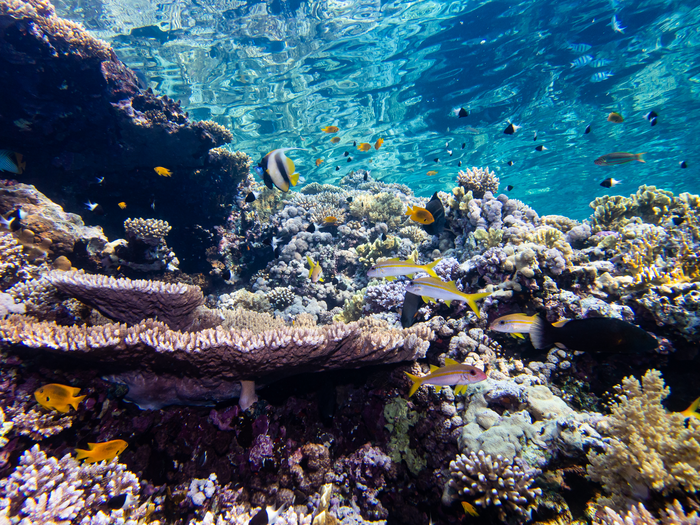In the salty darkness
living sculptures of the sea
sway beneath a lunar trance,
a kaleidoscope of life
spreading their seed
in synchronised dance –
reefs aglow,
with the light
of a thousand
future selves.
The city bleeds
into the ocean,
casting spectral shade
upon this
moving mosaic.
In our artificial lights
we reach for the stars,
yet in their wake
the moon’s soft call
is lost,
traded for the
harsh
and steady glare
of our endless
neon dawn.

This poem is inspired by recent research, which has found that coastal lights trick coral reefs into spawning earlier than they should.
Coral reefs are one of the most diverse, economically valuable, and threatened ecosystems in the world. Issues like climate change, habitat destruction, overfishing, and pollution have significantly reduced the coral reef cover since the 1950s. To preserve coral reefs for the future, it’s vital to maintain healthy coral reproduction. Coral reefs rely on a reproductive strategy known as synchronised broadcast spawning, where many eggs and sperm are released simultaneously on specific nights of the year. However, recent reports indicate disruptions in this timing, particularly in the northern Red Sea, with artificial light at night from coastal developments thought to be disrupting the moonlight cycles that corals rely on for spawning.
In this new study, researchers analysed data from a recently published atlas of underwater light pollution alongside a global dataset of 2135 coral spawning observations. They found that, for most species, corals exposed to artificial light at night spawned one to three days closer to the full moon compared to those on unlit reefs. This light possibly alters the spawning trigger, creating a perceived period of minimum light between sunset and moonrise on nights after the full moon. This shift in timing could lower the chances of coral egg fertilisation and survival, thereby impacting the resilience of reef ecosystems.
Tragically beautiful
Thank you Deanna. 🙌